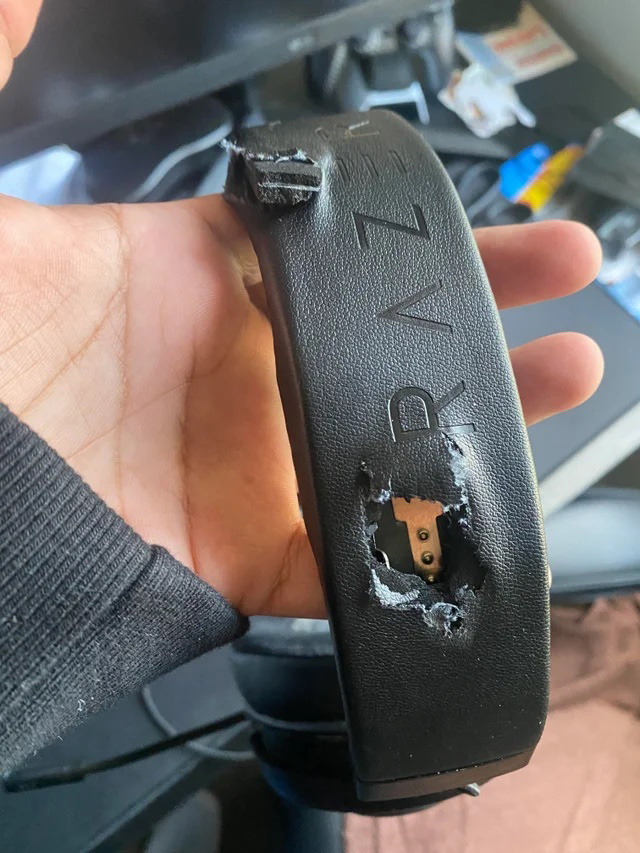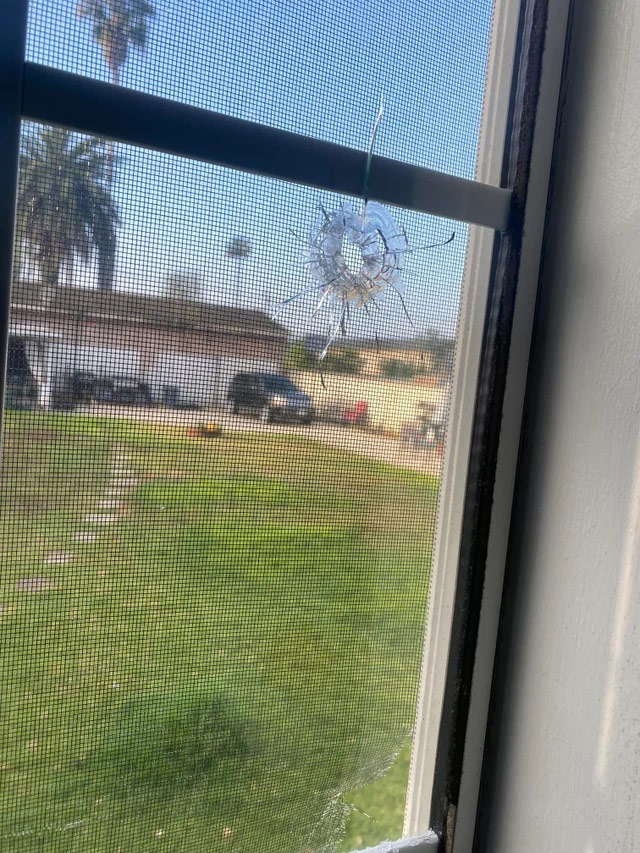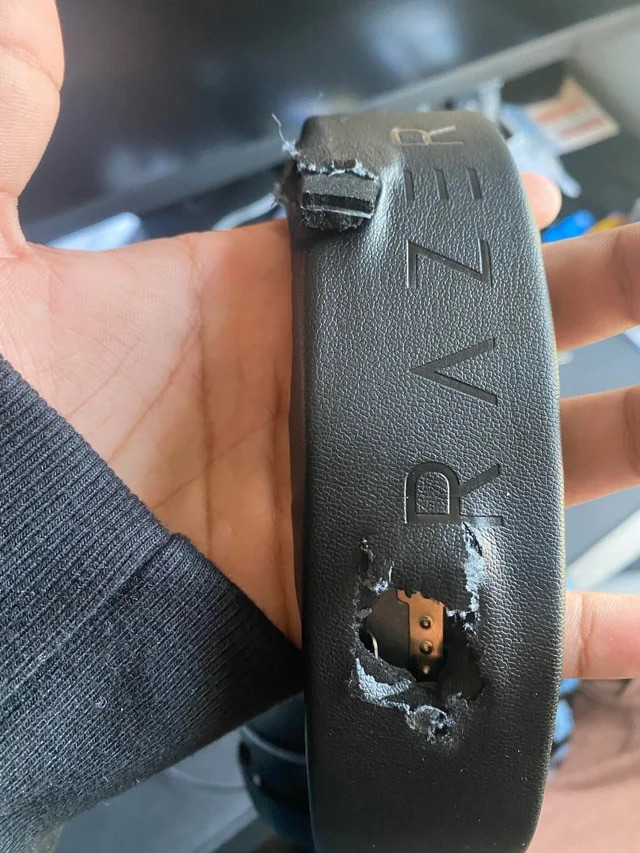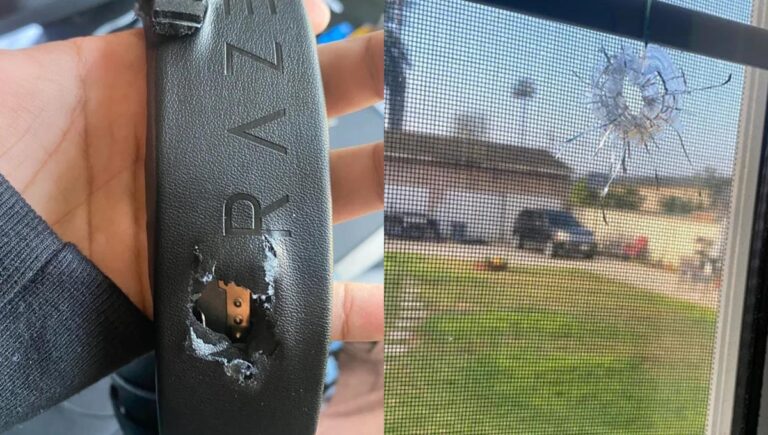Gamer goes viral after claiming his Razer headset saved his life from a stray bullet
A gamer’s Reddit post has gone viral after he showed evidence of a stray bullet ricocheting off his Razer headset. In a subreddit dedicated to the brand’s gaming gear, a thread appeared by user Enough_Dance_956 whereby he detailed how his headphones most likely saved his life from a rogue bullet that had entered his bedroom through the window.


Showcasing the above images with the caption “Razer saved my life,” the gamer went on to explain in a follow-up comment, “Wednesday [30 March] morning at 10:30 am, a stray bullet went through my window and hit the Razer headphones on top of my head. If it wasn’t for the headphones made with good quality I would’ve been a dead kid at the age of eighteen. I couldn’t even imagine all the pain my family and friends would’ve been through.”
The gamer also cited that he was trying to get a hold of someone from the gaming company to “thank them with all my heart,” and according to UNILAD, he managed to do just that. The publication reported that the story may have caught the attention of the brand with a user claiming to be a member of the support team at Razer writing in the thread, “Your Razer fam is extremely glad to know that you’re safe! Sent you a message so we can take care of your concern. Let’s continue from there.”
The Reddit user posted further evidence to dispute claims that he was lying and updated his supporters that Razer had indeed been in contact with him—vowing to send him a new pair.
here’s more proof since people think it lying
byu/Enough_Dance_956 inrazer
The post garnered a lot of attention with users writing, “Is this just a thing that happens in America?” in reference to the fear of stray bullets hitting you from the comfort of your own home. Another wrote, “I feel like it would’ve just gone over your head if you didn’t have them on right? The chances it deflected it are incredibly low I would imagine.” To which the shocked teen replied, “Nah, I would’ve been dead. It ricocheted through my headset.”

Following on, the gamer has now finally received his new set—here’s to hoping he’ll just need it for video game bullets from now on.
new pair from razer came in. thank you 🙏
byu/Enough_Dance_956 inrazer





